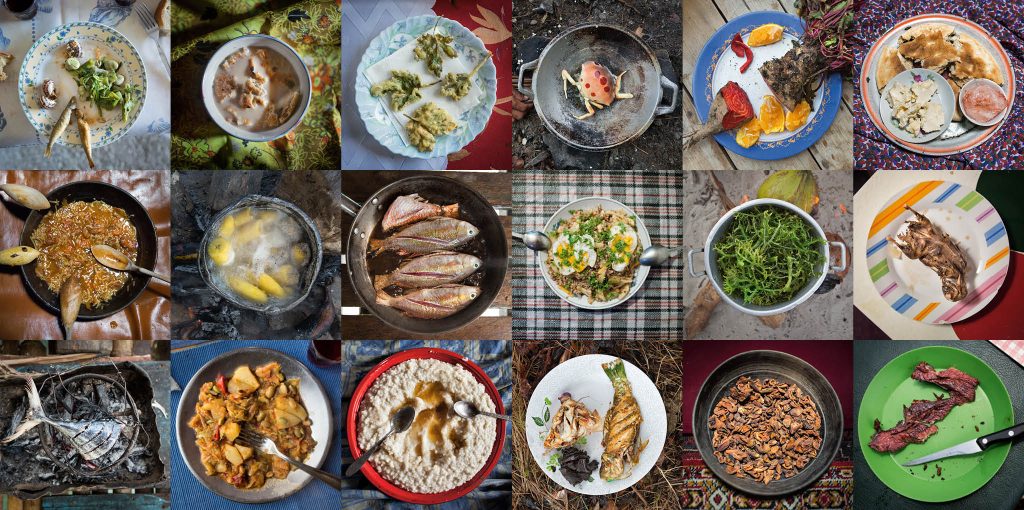For thousands of years, nomadic tribes have roamed deserts, mountains, and steppes, carrying their kitchens with them. Their meals reflect resilience, adaptability, and an intimate relationship with nature. While modern society often separates life from food production, nomadic diets remind us of a lifestyle where every bite is shaped by movement and survival.

Food Designed for Travel
Nomadic meals are practical – light to carry, easy to prepare, and long-lasting. Dried meat, milk products, flatbreads, and grains form the foundation of their diets. These foods are not only portable but also nutritious enough to sustain life in harsh environments.
Milk as a Lifeline
In many nomadic cultures, livestock is central to survival. Milk from goats, sheep, yaks, or camels is transformed into cheese, yogurt, butter, or fermented drinks. From Mongolia’s airag (fermented mare’s milk) to North Africa’s camel milk, dairy provides both energy and cultural identity.

Bread Under the Open Sky
Flatbreads cooked on hot stones or simple metal pans are staples of nomadic kitchens. Quick to prepare and adaptable to different flours, they represent the simplicity and ingenuity of a people always on the move.
The Role of Preservation
Drying, smoking, and fermenting ensure food can last through long journeys and unpredictable climates. These preservation techniques are not just about practicality – they also carry traditional flavors passed down for generations.
Food as Community and Tradition
Meals for nomadic tribes are rarely eaten alone. Sharing food strengthens social bonds and affirms identity. Even with limited resources, hospitality remains a sacred value. Offering milk, tea, or bread to guests is a sign of respect and connection.
Lessons for the Modern World
Nomadic meals teach us to value simplicity, adaptability, and sustainability. In a time of abundance and waste, their traditions show how to honor resources, respect animals, and survive with dignity.

Meals of nomadic tribes are not just about survival – they are about belonging to the land and carrying culture wherever the journey leads.
Contact Information:
Address: Kenyatta Avenue, Nairobi, Kenya
Phone: +254 20 2219547
Notice:
We use cookies to improve your experience. By accepting, you agree to the use of analytics and personalized ads. By staying on our website, you consent to the transfer of your information.